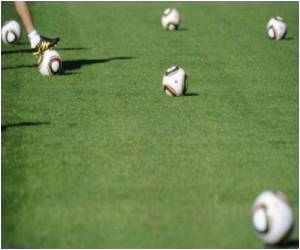College football players who had been playing for more years experienced smaller hippocampal volume than those with fewer years of football experience, says study published in JAMA.

Rashmi Singh, Ph.D., of the Laureate Institute for Brain Research, Tulsa, and colleagues investigated the relationship between years of football playing experience and history of concussion with cognitive performance and hippocampal volume in collegiate football players. The study included 25 players with a history of clinician-diagnosed concussion, collegiate football players without a history of concussion (n = 25), and non-football-playing, healthy controls (n = 25). High-resolution anatomical magnetic resonance imaging was used to quantify brain volumes. Scores on a computerized concussion-related cognitive test were used to assess the athletes.
The researchers found smaller hippocampal volumes in collegiate football athletes compared with healthy control participants. Players with a history of concussion had smaller hippocampal volumes than players without concussion. Number of years of football-playing experience was inversely associated with both hippocampal volume and reaction time.
"The present study design limits our ability to dissociate [regard as unconnected] among the many possible factors involved in these hippocampal volume findings, but our study should serve as an impetus for future longitudinal research to investigate the neuroanatomical and cognitive changes in young contact-sport athletes. The clinical significance of the observed hippocampal size differences is unknown at this time," the authors conclude.
Source-Eurekalert
 MEDINDIA
MEDINDIA




 Email
Email









